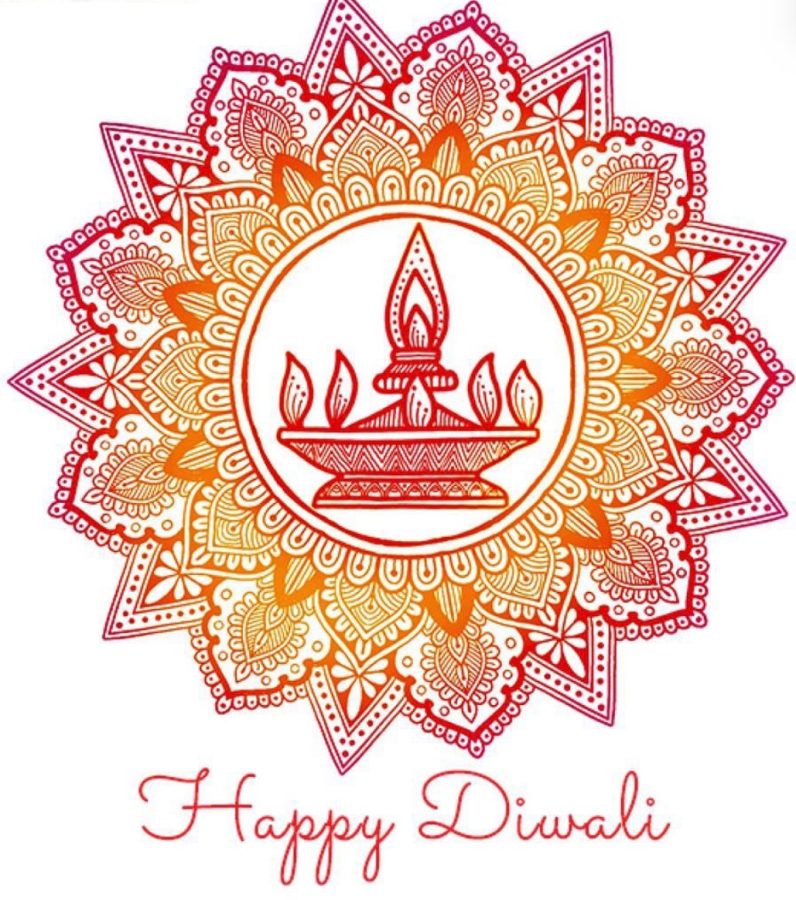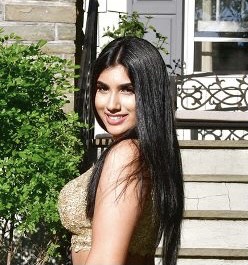Celebrating Diwali 2021
The Festival of Lights is here to kick off the holiday season of shopping, giving, and overeating.
November 4, 2021
The holiday season is here. Diwali, Thanksgiving and Christmas are sure to spark the endorphins needed to look past the chilly weather.
Diwali, known as the festival of lights, is a five-day annual holiday that derives its name from the row (avali) of clay lamps (deepa) that Hindus light outside their homes to symbolize the inner light that protects from spiritual darkness. Diwali is celebrated on the darkest night of the Hindu lunar calendar, which happens to be on Nov. 4 this year. It is observed mostly by Hindus, but also by Sikhs, Jains and Newar Buddhists around the world.
Diwali is associated with religious stories across several faiths, so the meanings that people associate with Diwali may vary. It often represents the triumph of light over darkness. The most popular ancient story is of King Rama, an incarnation of the Hindu god Vishnu. According to the legend, Rama rescued his wife, Sita, from the evil king, Lanka, by building a bridge from India to Sri Lanka.
Lightings diyas is a given on Diwali, but each of the five days consists of different pujas (prayers) and activities. Before the holiday begins, some people adorn their homes with rangoli, an art form that is created on the floor using colored rice, flowers, colored sand or paints.
Day 1: Dhanteras, is for celebrating Lakshmi, the Hindu goddess of wealth, prosperity, youth and beauty. On this first day, people buy new items such as jewelry, clothing and utensils in addition to light lamps to welcome Lakshmi.
Day 2: Chhoti Diwali, Naraka Chaturdasi or Kali Chaudas, focuses on a story from Hindu mythology about the god Krishna and his defeat of the demon god Narakasura. On this day, some people put up twinkling lights to celebrate his victory.
Day 3: Diwali, Deepawali, or Lakshmi Puja, is the most important day of the Diwali festival. On this day, people visit family and friends to feast and exchange mithai (sweets) and gifts. People also continue to light lamps and candles to welcome light and prosperity from the goddess Lakshmi.
Day 4: Govardhan Puja or Padva, is the day Krishna defeated Indra and the people are asked to worship nature.
Day 5: Bhai Dooj or Yama Dwitiva, is a day for brothers and sisters to honor one another. Siblings perform a ceremony called tilak and pray for one another. On this final day of Diwali, many people also set off fireworks.
For Americans, getting the chance to wear an ethnic outfit is always a nice tribute to the religion and culture, especially amongst the current mom-fit jeans and ‘shackets’ era. Shopping for Diwali in Queens neighborhoods such as Little Guyana, in Richmond Hill or Little India in Jackson Heights evokes the warm, fuzzy feeling we all get during the holidays. Since Diwali is the equivalent to a Christian Christmas, gifts are also exchanged; any kind of gift is acceptable because it’s the principle behind giving it. Diwali parties are sure to draw in a crowd and keep them interested with decorum, lighting, and endless food and desserts. So, you might need to skip class to get started on your jalebi.




